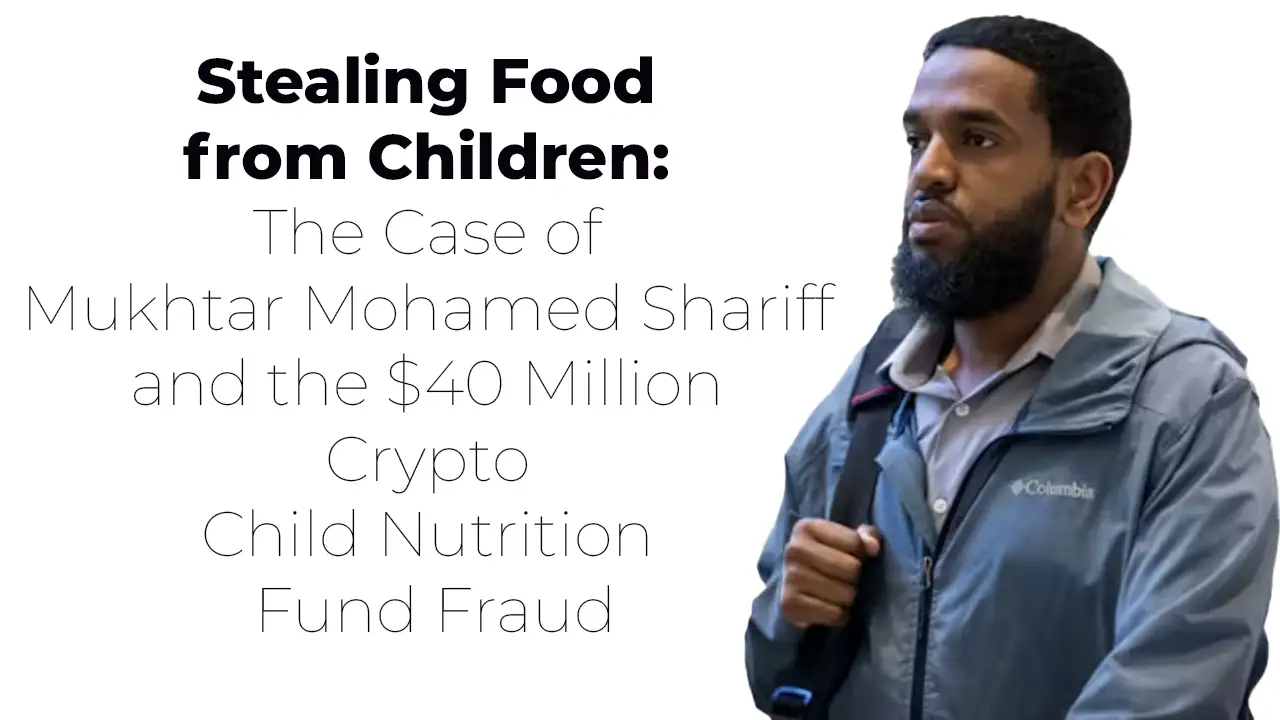
It's not often I agree with feds, but I don't think anyone could have said it better than Special Agent in Charge Alvin M. Winston of the FBI Minneapolis who said:

Exploiting a program designed to feed underserved children during the covid pandemic is reprehensible.
The case against Mukhtar Mohamed Shariff, who has been implicated in a significant misappropriation of funds from a federal child nutrition program, shows a sad instance of public trust betrayal: on a horrific scale, with the most helpless of all people in the US, children. The U.S. government has firmly opposed Shariff's motion for release pending sentencing after his conviction, highlighting the severity and implications of his actions.
Overview of the Fraud Scheme
Shariff played a central role in a scheme that defrauded over $40 million from a federal program designed to provide nutritious meals to children. He and his associates were accused of inflating meal service numbers significantly. In a notable instance, claims were made that one site was serving 3,500 meals daily to children, numbers that were grossly exaggerated and logistically implausible.
Shariff’s Defense and Testimony
During his trial, Shariff testified, denying responsibility for the financial manipulations that underpinned the scheme. He claimed no involvement in preparing or overseeing the fraudulent invoices, child attendance rosters, reimbursement claims, or meal count forms submitted by his company. Despite his claims, evidence presented by the prosecution painted a different picture of deliberate and systematic fraud.
Juror Bribery and Corruption
Shariff’s trial revealed an attempt to further corrupt the judicial process. An associate of Shariff tried to bribe a juror with $120,000, promising more for a favorable verdict, an act that dramatically highlights the depths of corruption involved. This act not only sought to undermine the trial's integrity but also indicated the lengths to which Shariff and his associates were willing to go to evade justice.
Cryptocurrency and International Ties
Further investigations into Shariff’s financial activities revealed that he had transferred significant sums from the fraud proceeds to purchase cryptocurrencies. These funds were moved to international locations like Dubai and Germany, suggesting potential escape plans and the sophistication of his attempts to hide illicit gains.
Closing Arguments and Broader Implications
The trial, part of a larger FBI investigation into pandemic-related fraud, demonstrated the extensive measures taken by Shariff and others to exploit emergency funding designed to assist needy children during a critical time. Prosecutors allege that Shariff, along with his co-defendants, created shell companies and submitted fictitious claims to enrich themselves unlawfully.
Government’s Stance on Detention
In light of these findings, including Shariff’s direct involvement in the fraud, his attempt at juror bribery, and his extensive international financial maneuvers, the government argued against his release. These actions provide substantial evidence supporting the need to detain him as he awaits sentencing.
Conclusion
Mukhtar Mohamed Shariff’s case is a reminder of the vulnerabilities in public funding programs and the necessity for rigorous oversight. It not only shows the personal greed that fueled a substantial theft from a federally funded child nutrition program but also the broader societal implications of such high-level fraud on public trust and the welfare of vulnerable populations.